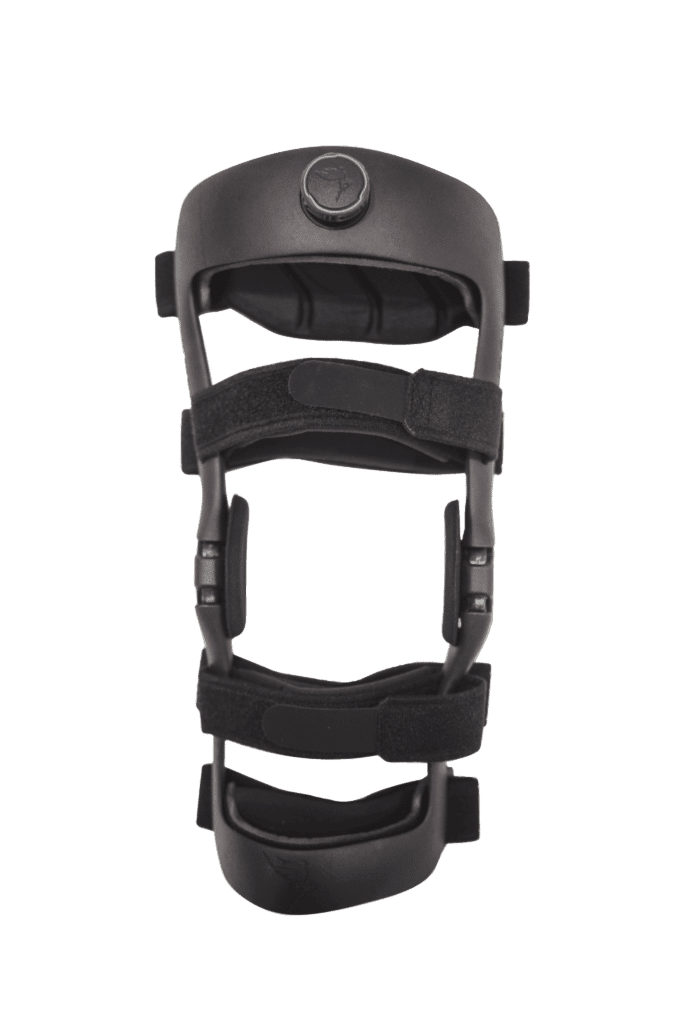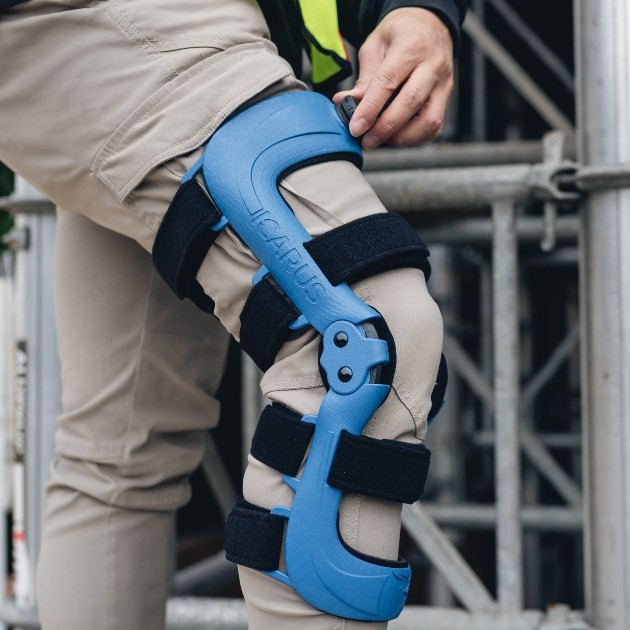Chronic knee pain affects around 25% of adults in the U.S., and many at risk of needing surgery wonder how they can prevent knee surgery. While, in some cases, knee surgery is required, there are also plenty of less invasive and less expensive solutions that can be turned to instead.
If you want to prevent knee surgery and improve your knee health, you’re in the right place. Discover six of the most effective strategies you can implement in our article.
I. Maintain a Healthy Weight
Excess weight and obesity place extra stress on your knee joints (as well as other joints in the body). Over time, this stress can damage the soft tissues of the knee joint and increase your risk of developing conditions like osteoarthritis.
The force placed on the knees when walking on level ground equals 1.5 times your body weight. Say you weigh 200 pounds. You put 300 pounds of pressure on your knees with every step. When walking uphill or downhill, the force increases to 2-3 times your body weight; when squatting, it goes up to 4-5 times!
If you’re overweight or obese, losing weight will help minimize the stress on your knee joints and reduce your injury risk. Although weight loss is beneficial, it’s important to avoid crash diets that cause you to lose a lot of weight in a short period. Instead, work with a healthcare professional — such as a registered dietitian — to adjust your eating habits and lose weight healthily and sustainably.
II. Eat Plenty of Protein
A high-protein diet supports muscle growth and development, but it’s also good for your bones — including the bones that make up the knee joint. Research shows that eating sufficient protein increases insulin-like growth factor (IGF-1), which is critical to bone health. It also boosts calcium absorption to strengthen the bones further.
If you’re trying to lose weight, eating more protein can help. Protein is highly satiating, meaning it helps you feel fuller longer after eating, and reduces your chances of overeating. There are lots of ways to add more protein to your diet. Meat, fish, and poultry are excellent protein sources, as are eggs and dairy products like Greek yogurt. You can also get protein from plant-based sources like legumes such as beans, peas, lentils, and peanuts.
III. Exercise Regularly
Regular exercise is essential for everyone, especially those who want to strengthen their knee joint and prevent knee surgery. Cardiovascular exercise helps improve your stamina and support overall heart health. At the same time, make sure you don’t neglect strength training.
Several key muscles surround the knee joint — primarily the quadriceps and hamstrings. Dedicating at least two days per week to strengthening these muscles will provide more support to the knee and help to reduce your injury risk. Some of the most effective strength exercises for those wanting to support their knees include squats, deadlifts, step-ups, and lunges.
Consider working with a personal trainer or physical therapist if these exercises are new to you. A professional can help you learn proper form and avoid injuring yourself while exercising.
IV. Prioritize FLexibility, Mobility & Balance
Along with strength training, it’s also helpful to incorporate flexibility, mobility, and balance training into your routine. Many knee injuries can be avoided with regular stretching and mobility work. That’s why yoga often ranks as one of the most popular post-knee replacement exercises. Low-impact forms of exercise like pilates can also be beneficial.
Improving your balance is also beneficial because it improves joint stability. Better joint stability reduces your risk of injuring your knee during everyday activities like walking or climbing the stairs. Several studies show that balance training is so effective that it reduces the risk of joint injury (including knee injuries) by 45 percent! They also showed that when balance training is combined with strength and agility training, injury rates drop by 68 percent.
V. Consider Non-Surgical Treatments
You may want to avoid knee surgery, but that doesn’t mean you can’t work with a medical professional to pursue other non-surgical options. The following are some of the most popular treatments to consider:
Injections
Cortisone shots and hyaluronic acid (HA) injections can lubricate the knee joint, reduce knee pain, and potentially reduce your chances of needing surgery.
Radiofrequency Ablation (RFA)
Radiofrequency ablation destroys the sensory nerves that transmit pain signals from the knee to the brain. This treatment helps control knee pain temporarily (nerves typically grow back in 6-24 months).
VI. Wear a Knee Brace
When exercising — and even when going about your everyday routine — it can be beneficial to wear a knee brace. A brace helps reduce pressure on the knee joint and allows you to move more confidently. There are several options to choose from. However, an unloader knee brace is an excellent option that works for many different types of knee pain and injuries — especially pain that affects multiple parts of the joint.
An unloader knee brace helps to unload, hence the name, weight placed on the knee. It shifts the weight from one part of the knee to the other or directly into the brace. These strategic weight shifts improve joint mobility and minimize pain, allowing you to participate in the activities you enjoy — and those like regular strength training that will help further prevent the likelihood of knee surgery.
Prevent The Need for Knee Surgery
From maintaining a healthy weight to wearing a knee brace while exercising, you can take numerous steps to minimize discomfort due to knee injuries or disease and help prevent knee surgery. Of all the solutions discussed above, a knee brace is one of the simplest and most effective options. Choose a supportive, expertly designed brace — like the Ascender at Icarus Medical — for the best results.
Learn more about our products by visiting our website, or contact us to connect with an Icarus representative.

